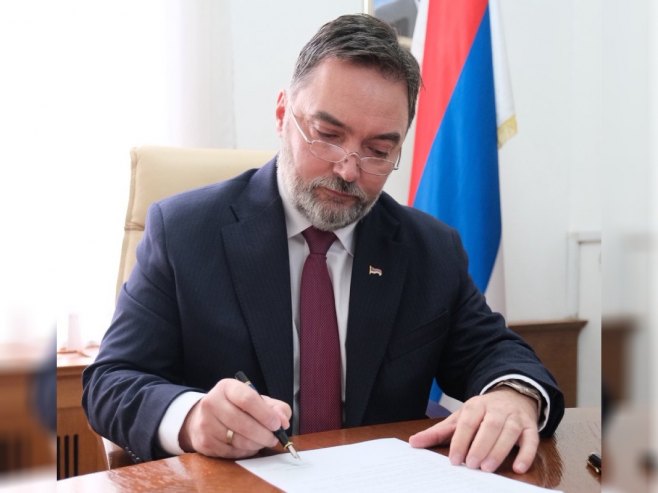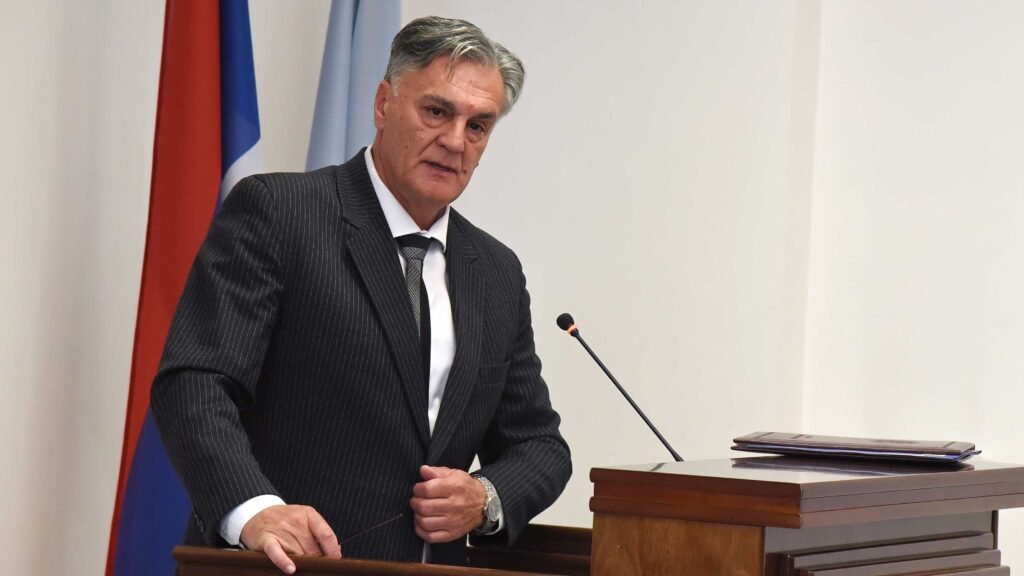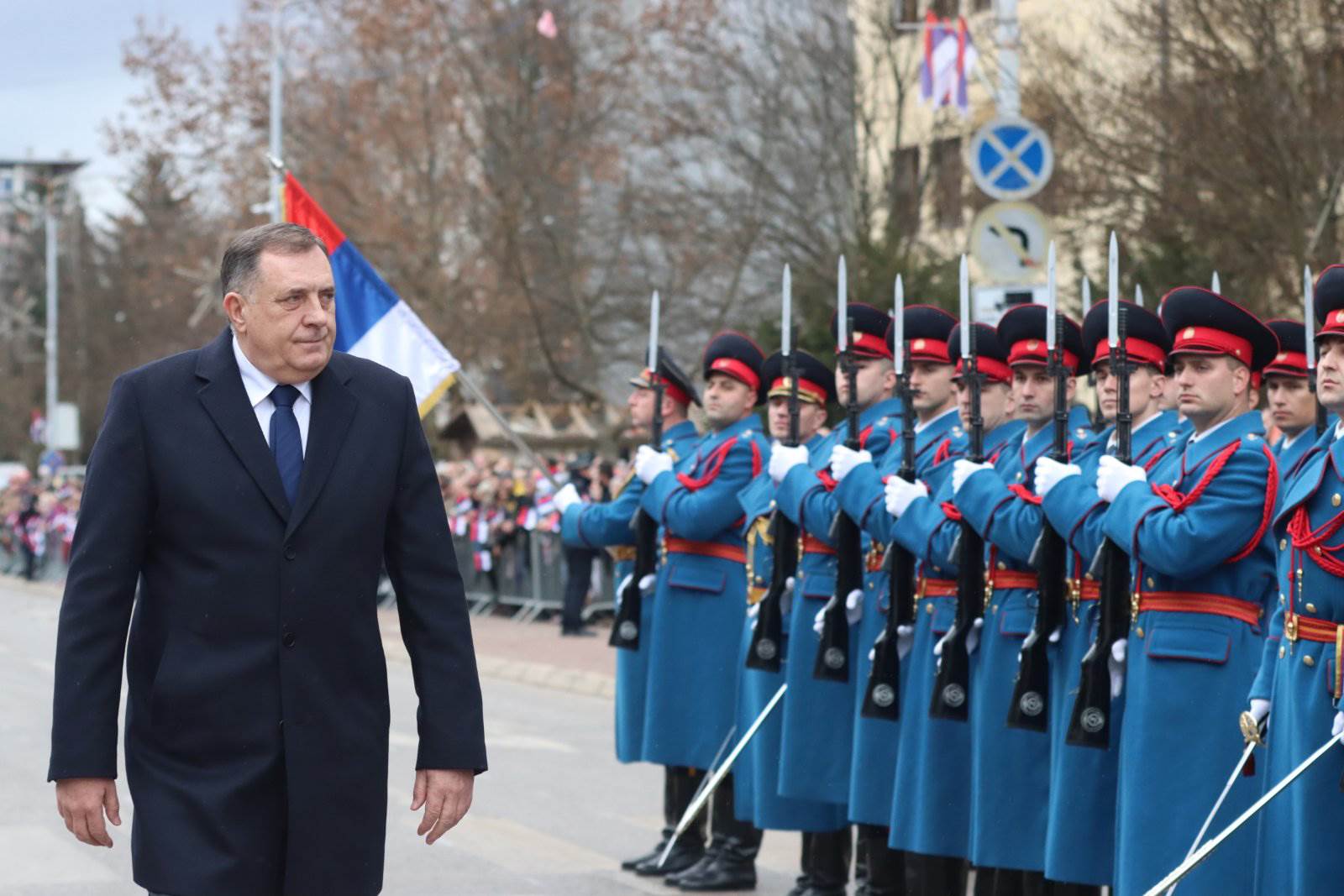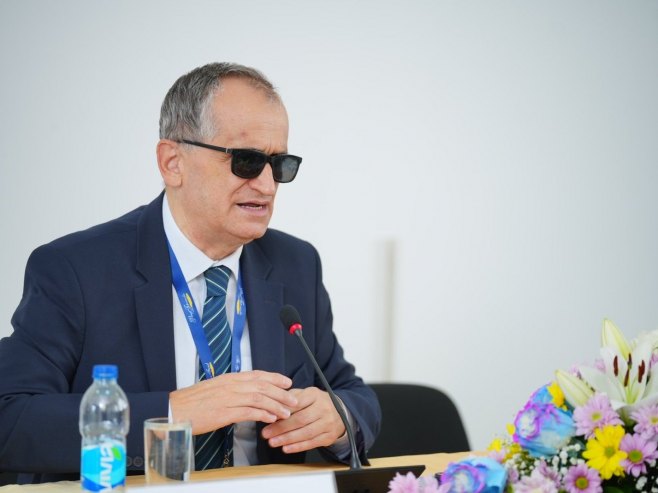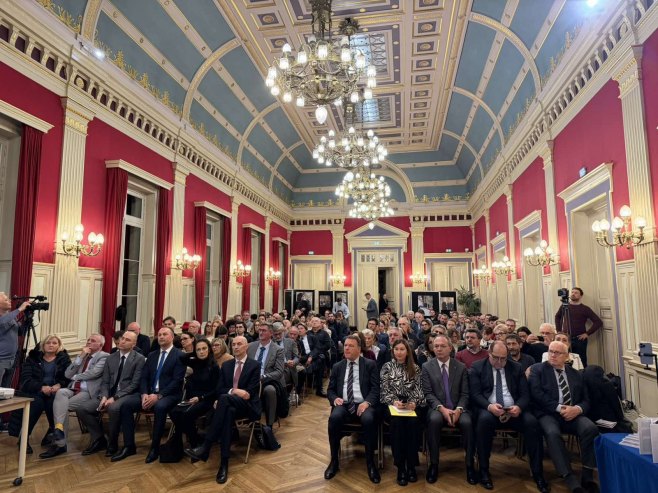Constitutional law professor Siniša Karan emphasized that nations as bearers of sovereignty are obliged to protect the Dayton Agreement and respond to 30 years of its undermining by democratically expressing their will, and the best way to achieve this is through a referendum.
The foundation of the constitutional and state organization of the newly formed state community are the Geneva and New York principles, which were directly embedded and elaborated in the Constitution of BiH. In this way, they became both Dayton and constitutional principles upon which the complex state community of BiH rests, Karan explained.
Through a referendum, we return to the Geneva and New York principles and confirm what was agreed upon in Dayton.
The dissolution of Yugoslavia is a factual reality that has not yet received a competent and final interpretation, but the causes of the SFRY’s collapse are clear. They were primarily the diversity of the population and the inability of the central communist authority to maintain the artificial “brotherhood and unity.”
By late 1991, and at the latest early 1992, BiH no longer had sovereign authority. BiH effectively ceased to function as a state, as its institutions were no longer operating effectively across the entire territory. By the end of 1992, three state-forming units existed in the former SR BiH: Republika Bosna and Herzegovina (Bosniak part), Republika Srpska (Serb part), and Herzeg-Bosna (Croat part).
All three state-forming units had the characteristics of a national state, each with its territory, army, police, governance organization, currency, and other state institutions and symbols.
Republika Srpska was recognized at least twice as an independent state after the breakup of SR BiH until Dayton – first by the Torvald Stoltenberg and David Owen plan proposed in 1993, which divided BiH into three republics in a confederal relationship.
The second recognition was through the Framework Agreement on Confederal Relations between Croatia and the Bosniak-Croat Federation in BiH, part of the overall arrangement in forming the Federation of BiH, established by the Washington Agreement of March 18, 1994.
Peace proposals acknowledged the existence of three states on the territory of former SR BiH. Proposed solutions included confederal relations or forming a federal union. No plan envisioned a unitary BiH.
BiH could not transform from a federal unit of former SFRY into an independent, especially unitary, state, because each of the three constituent peoples had a different perspective on resolving the Yugoslav crisis.
The final proposal was the Dayton Peace Agreement, which constituted BiH as a complex confederal-federal state composed of two state-forming units, accepted by all three peoples and confirmed by the international community.
The Dayton Peace Agreement, especially its Annex 4 – the Constitution of BiH – remains the only normative framework for joint life in BiH. It reflected the societal conditions of 1995, which have not changed today.
Although the Dayton Agreement did not fully satisfy anyone, all parties accepted it because it fulfilled the minimum requirements of all three sides. It resembles previous peace proposals (Cutileiro, Vance-Owen, Owen-Stoltenberg, Contact Group) predicting some form of real union, federation, or confederation; none foresaw a unitary BiH.
Through Dayton:
- Republika Srpska achieved minimum goals: territorial-ethnic representation, constitutive equality, partial sovereignty, and international verification.
- Bosniaks retained BiH’s “international legal continuity” with a modified internal structure.
- Croats secured constitutive status and equal participation in institution-building.
Dayton established a limited yet balanced constitutional structure respecting the sovereignty of each entity and people, ensuring equality, parity, and consensus as guarantees of sovereignty.
The constitutional and state foundation of BiH stems from the Geneva and New York principles, directly incorporated into the Constitution. The preamble states: “Referring to the Basic Principles agreed on September 8, 1995, in Geneva and September 26, 1995, in New York…” Representatives of Republika Srpska were active negotiators.
However, these principles have been degraded by unconstitutional actions of the BiH Constitutional Court and High Representatives, creating a parallel system incompatible with Dayton.
Today, BiH’s actual constitutional, political, and institutional state is far from what Dayton guarantees. BiH has effectively become a modern protectorate, with unconstitutional transfers of powers undermining the rule of law, particularly by High Representative Christian Schmidt.
Republika Srpska respects Dayton BiH, composed of two entities and three constituent peoples. No institution or actor is above decisions made democratically at the entity or joint level.
Current inconsistencies in competencies transferred to the BiH level without amending the Constitution must be resolved by strictly applying the constitutional provision that entities “fully adhere to this Constitution of BiH.”
The reasons and social conditions that led to Dayton remain unchanged. Nations as sovereign bearers must protect the Agreement and express their will democratically. The best method is a referendum, which restores Geneva and New York principles and confirms the Dayton commitments.
Source: RTRS
